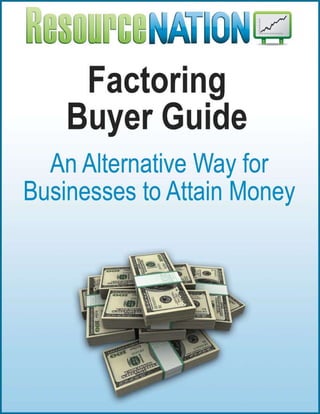This document provides an overview of invoice factoring or accounts receivable factoring. It defines factoring as a process where a company can sell its unpaid invoices to a factoring company in exchange for immediate cash, typically 70-90% of the invoice amount. The factoring company then handles billing and collection from customers. The document outlines the basic factoring process, defines common factoring terms, and notes that factoring provides an alternative source of financing for businesses compared to loans, with the creditworthiness of customers rather than the business determining eligibility.














